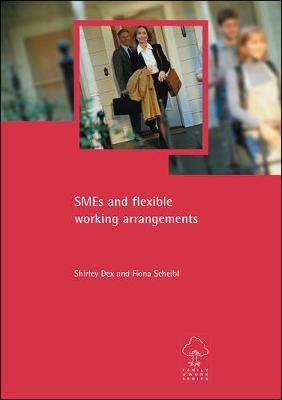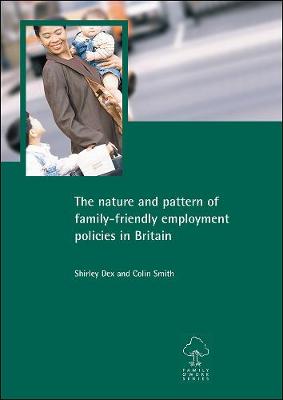Family and Work
2 total works
Paid work and family life have both been subject to pressures and change that are well documented. Flexible working arrangements have been seen as a way of relieving the pressures without necessarily reducing an employee's productivity. This report examines flexible working arrangements in small and medium sized enterprises (SMEs) - an important and large sector that has been under-researched. It addresses the questions: How do small businesses respond to their employee's desire for flexible working arrangements? What do employees in these businesses think of the flexibility or lack of it? What are the problems they face in offering flexibility to employees? Are the problems faced in small businesses resolvable? Is good practice transferable between organisations? It compares employees' responses and needs in firms with and without family-friendly policies in order to more clearly identify what are genuinely family-friendly arrangements and good practice.
The report should be read by human resource managers, owners and managers of SMEs, policy makers in central and local government, as well as academics, students and researchers with an interest in industrial relations, human resource management, and work and family life.
The report should be read by human resource managers, owners and managers of SMEs, policy makers in central and local government, as well as academics, students and researchers with an interest in industrial relations, human resource management, and work and family life.
The nature and pattern of family-friendly employment policies in Britain
by Shirley Dex and Colin Smith
Published 1 May 2002
There is need for a more detailed understanding of employers' motivations for offering flexible working and the outcomes of different policies and practices for both employers and employees.
This report draws on data from a large-scale national survey of workplace employee relations (WERS) to fill these gaps in our knowledge and understanding. It is the first time these issues have been explored through analysis of such a large and representative sample of companies and employees.
This report draws on data from a large-scale national survey of workplace employee relations (WERS) to fill these gaps in our knowledge and understanding. It is the first time these issues have been explored through analysis of such a large and representative sample of companies and employees.

